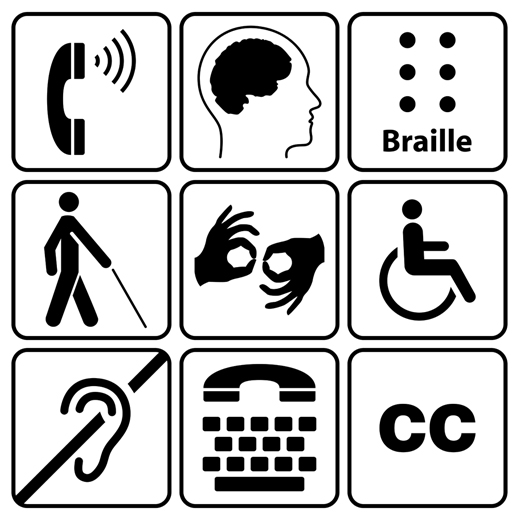4 Reasonable adjustments
Like other organisational bodies, health services must by law make ‘reasonable adjustments’ to make sure people with disabilities, including learning disabilities, can access high quality healthcare. In the next activity you will explore what this might actually mean in practice.
Activity 3 What are reasonable adjustments?
The Royal College of Nursing (RCN) has outlined the sort of adjustments that should be made for people with learning disabilities if their disadvantages in accessing good quality healthcare are to be addressed.
Reasonable adjustments can be made to many areas of health services. Services can ensure, for example, that:
- buildings, including toilets, are accessible to people with physical disabilities
- signposting is clear and easy to follow
- information and advice is offered in formats and languages that people can understand
- extra time is offered to people who have particular communication needs or difficulty understanding what is being said
- alternatives to hospital or clinic attendance are considered for those who have problems in getting to appointments
- families and friends of people with disabilities are actively involved, if the person wishes them to be.
Now read Jessica’s story below from the Confidential enquiry into premature deaths of people with learning disabilities (Heslop et al., 2013) and then answer the question that follows.
Case study – Jessica
Jessica had surgery for congenital heart disease at the age of four. She had biannual follow-ups from the paediatric congenital heart disease team throughout her childhood. She was expected to be reviewed again by the adult congenital heart disease team three years after moving from paediatric to adult services, but this did not happen. She was later discharged from the clinic as being ‘lost to follow-up’. Jessica had little contact with health services, and did not receive Annual Health Checks from her GP. She subsequently died from complications of her heart disease, and the panel reviewing the circumstances of her death identified the lack of follow-up for her heart disease as being a contributory factor in her premature death.
(Source: Heslop et al., 2013)
What ‘reasonable adjustments’ might have made a difference to Jessica?
Answer
Taken one by one, no single adjustment listed by the RCN would have been enough by itself to prolong Jessica’s life. Improved communication and a readiness to administer treatment other than in the most routine of ways would have helped.
What also appears to be missing here was anyone to check that what the paediatric team had prescribed was actually happening. A ‘reasonable adjustment’ might have been for the clinic to ask a Learning Disability nurse to visit Jessica to find out why she had not come to clinic, and to understand what might have prevented her going.
At the same time, Jessica’s GP could have taken proactive steps to invite her for an annual check-up, to which she was entitled.
You can see from this example that ‘reasonable adjustments’ have to be more than a tick-box exercise. They require someone with authority to pay attention and take action. In the next section you will look at other examples of unnecessary deaths which help to reinforce this message.

